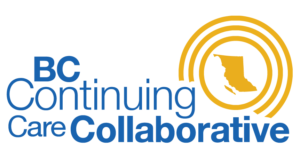Earlier this year, BC Care Providers Association hosted the 2nd Annual BC Continuing Care Collaborative in partnership with the BC Ministry of Health, bringing together over 170 stakeholders from across the continuing care sector. The day-long dialogue focused on how we will train, recruit and retain the next generation of continuing care workers. We have prepared a special report based upon the input of our delegates entitled “The Perfect Storm: A Health Human Resources Crisis in Seniors Care”, which will be released mid-April. The following post is a preview of that report…
 Delegates at the BC Continuing Care Collaborative identified that declining enrollment numbers in Health Care Aide (HCA) and Practical Nursing (PN) programs are a major threat to the sustainability of the continuing care sector. Tuition and other program costs were identified as a contributing factor to this long-term trend.
Delegates at the BC Continuing Care Collaborative identified that declining enrollment numbers in Health Care Aide (HCA) and Practical Nursing (PN) programs are a major threat to the sustainability of the continuing care sector. Tuition and other program costs were identified as a contributing factor to this long-term trend.
However, appropriate solutions to these challenges were top of mind for stakeholders. Delegates at the BC Continuing Care Collaborative noted that providing tuition relief and bursaries has been effective in boosting enrollment in HCA and PN programs in the past. They broadly agreed that tuition relief and bursaries will need to be a key component of any HHR recruitment initiative.
Delegates identified the need to expand the dual credit program model across B.C. Dual credit programs allow high school students to earn credit towards graduation while also earning credits towards an HCA certificate. Dual credit programs are an effective method to increase the participation of young people in the continuing care sector, and are underutilized in B.C.
Earlier this year, BCCPA contacted every school district in B.C. to either establish, or expand, dual credit program spaces for health care aides as part of its #BecauseBCCares awareness campaign.
Vancouver School Board (VSB) trustee Lisa Dominato tabled a motion at a Board of Education meeting in January asking staff to explore expanding the number of available spaces for health care assistants in the district’s dual credit program beyond just two per school year. The motion was referred to committee by the Board of Education on February 26th.
Recommendations:
- Provide tuition relief / bursaries for students entering HCA and PN training programs to increase recruitment of students.
- Expand existing dual credit programs to allow more secondary school students to graduate ready to work in the continuing care sector. Create additional dual credit programs in regions outside of Metro Vancouver.
Watch for upcoming previews at bccare.ca of The Perfect Storm report, to be released in mid-April.





